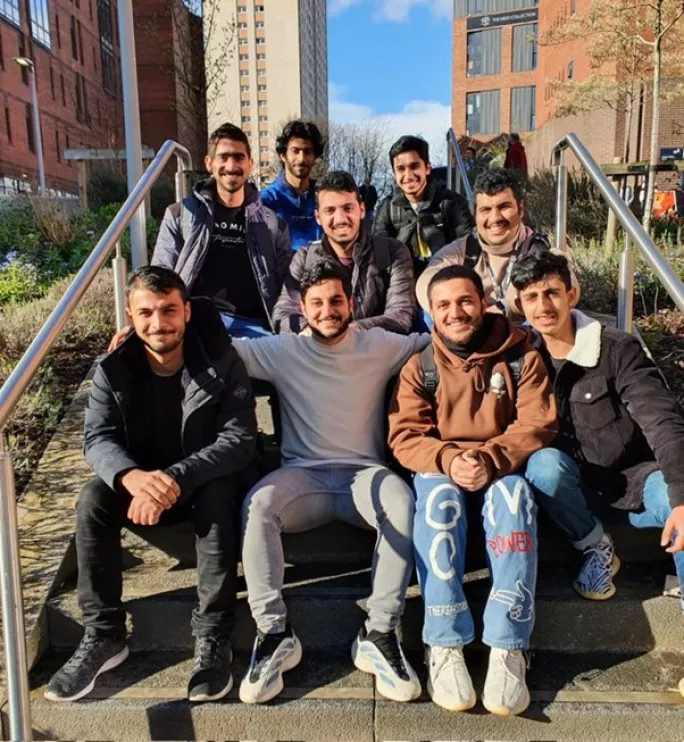
How international students enriched these schools

Life in schools is hectic - just pick your metaphor, from spinning plates to herding cats. Rest assured that there is always a feeling of trepidation about adding to this when looking for a student placement.
This was the position that myself and my colleague Amanda Corrigan found ourselves in last autumn. We had a group of nine TESOL (teaching English to speakers of other languages) students from Oman joining the University of Strathclyde.
They were sponsored to undertake a four-year programme and then return to Oman as English teachers. In their first year in the school of education, they needed to carry out 70 hours of volunteering within the community.
Previous experience had shown that this could be challenging because the students have no local network to tap into. The students had completed a year in the UK to develop their English, but, as one student pointed out, a year in Bournemouth had not prepared him for speaking Glaswegian!
- Covid: Student teachers ‘have been through a traumatic event’
- Modern studies: 50 years of a unique school subject
- Quick read: ‘Thinking globally in schools is essential right now’
- Languages: Why we now offer lessons in eight languages
We wanted to develop a programme that would work for everybody involved, hoping to enrich and add value (rather than adding another plate or cat to the to-do list). The placements needed to have both impact and authenticity, rather than being a tick-box exercise.
International teaching students in primary schools
Our students are Arabic speakers and we were very aware of the diversity within Glasgow. Perhaps by creating space for outreach work in the TESOL course, it was a way to provide placements for the students but also support our partner schools?
During the first semester the students worked with us to find out more about refugees and migrants and how migration affected Glasgow. They joined a seminar with Nicholas McMahon, a P7 teacher at Thornlie Primary School, in North Lanarkshire, working on art as a medium to support children and young people, based on his work with the Refuweegee charity.
Meanwhile, Glasgow City Council’s English as an additional language (EAL) team spent time further deepening knowledge of both the range of EAL needs within the community and how to work in schools.
Finally, three postgraduate modern studies students shared their experiences of starting placements and making a good impression in school. This session had even more of an impact as one of these students was a US citizen who had previously taught in Oman.

Working with EAL colleagues, five placements were set up in primary schools, which ran one day a week from January to March.
There were many potential barriers that we were able to overcome thanks to the supportive response of our partner schools.
All the students were very nervous before going into school, but when they arrived, as one said, “the teachers were quite nice - but the children were even more”.
The students worked in various ways across the schools, but it was clear that their ability to speak Arabic to children had a significant impact.
Feedback from the schools echoed the students’ thoughts. At Langside Primary, the pupils were described as “wonderful”. They supported EAL children at all levels, but the biggest impact was taking responsibility for a group on a trip to the Glasgow Science Centre.
Lorne Street Primary was delighted with the students’ enthusiasm and willingness to take part, and their eagerness to experience life as a Scottish primary teacher. We are also grateful to Dalmarnock Primary, Highpark Primary and Thornwood Primary, where staff could not have been more accommodating, and to the EAL team at Glasgow City Council who made this all possible.
From the moment we met with the students, they have surpassed our expectations, and this was also the case for colleagues in schools. So if you get a call, asking if you can accommodate a volunteer at your school, seize the opportunity to collaborate and widen your school’s global engagement - you’ll be glad you did.
Kathryn McCrorie is a teaching associate at the University of Strathclyde School of Education, specialising in the subject of modern studies
You need a Tes subscription to read this article
Subscribe now to read this article and get other subscriber-only content:
- Unlimited access to all Tes magazine content
- Exclusive subscriber-only stories
- Award-winning email newsletters
- Unlimited access to all Tes magazine content
- Exclusive subscriber-only stories
- Award-winning email newsletters
You need a subscription to read this article
Subscribe now to read this article and get other subscriber-only content, including:
- Unlimited access to all Tes magazine content
- Exclusive subscriber-only stories
- Award-winning email newsletters
- Unlimited access to all Tes magazine content
- Exclusive subscriber-only stories
- Award-winning email newsletters
topics in this article



